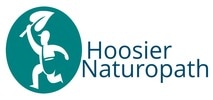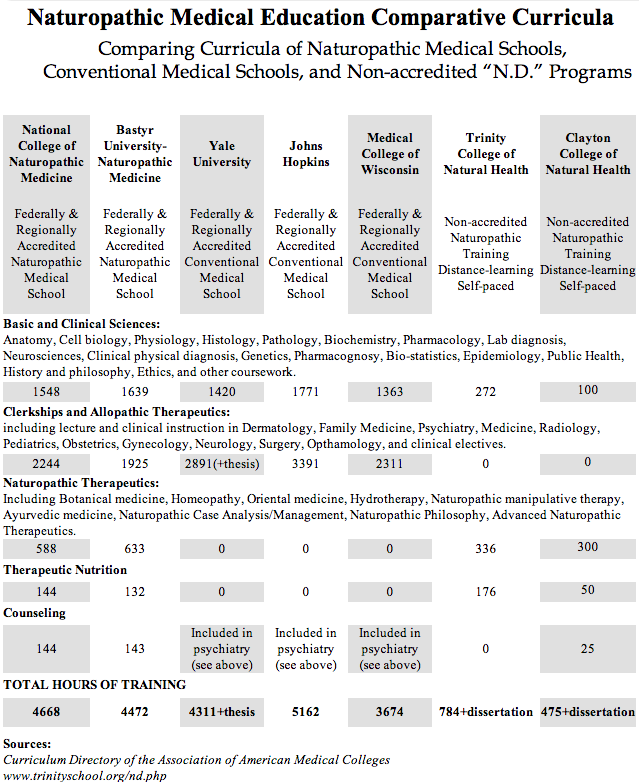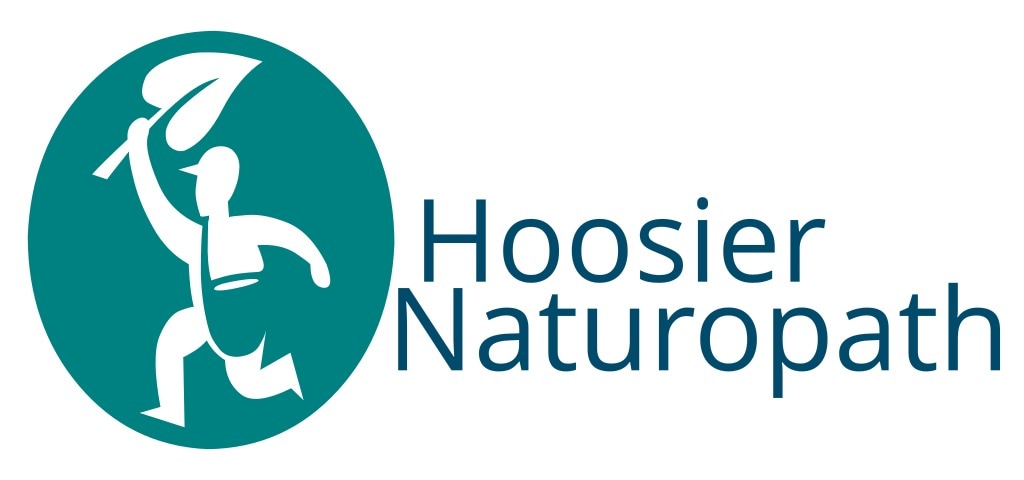our qualifications.
Our doctors are graduates of US Department of Education accredited 4-year graduate level, on-campus naturopathic medical schools.
In addition to the basic medical sciences (such as biochemistry, human anatomy & physiology, immunology, microbiology, pharmacology, etc.) naturopathic doctors receive training** in:
While Indiana does not currently license naturopathic doctors, all doctor employees of Hoosier Naturopath currently maintain an active professional license to practice naturopathic medicine in a U.S. state which does regulate naturopathic medicine. Depending on the state where they hold a license, they can legally use the designation ND, N.D., NMD, Naturopath, Naturopathic Doctor, or Naturopathic Physician in association with their name.
note: In some states (both regulated and unregulated depending on the laws of that state), those holding diplomas or certificates from short-course correspondence schools or short-course web-based schools have been granted the legal right to use the designation Naturopath or Traditional Naturopath. In some unregulated states (such as Indiana) anyone can call themselves a Naturopath, ND, Naturopathic Doctor, Traditional Naturopath, or Naturopathic Practitioner. They are free to use these titles regardless of their training or lack thereof. The confusion created for the public is unfortunate. Historically speaking (spanning over 100 years of well-documented naturopathic history), the titles Naturopath and Naturopathic Doctor have been associated solely with medically trained naturopathic doctors, who alone are qualified and trained to serve as primary care physicians and as the unsurpassed experts in natural medicine.
In more recent years our naturopathic schools began to drift away from their foundational understanding of naturopathic philosophy and became more aligned with the philosophy of allopathic (conventional) medicine. This drift affected not only the curriculum of the naturopathic medical schools, but also the way that naturopathic medicine was taught, modeled, and clinically practiced. In the most basic way, the schools became untethered and eventually departed from the profession's foundational concept, the very philosophical core on which naturopathy was founded - vitalism. Recognizing this drift and the sequelae that would follow, a post-graduate nonprofit Institute (the Naturopathic Medicine Institute) was founded by many of the elders within our naturopathic profession. The Naturopathic Medicine Insitute is dedicated to keeping the concept of vitalism alive and the foundation of naturopathy sure. The elders wanted to make certain that the graduates of today's naturopathic schools had a place to go where they could learn the time-honored and clinically-proven philosophy of naturopathic medicine, as well as how to apply that philosophy within clinical practice. In essence, they wanted a place where current naturopathic students as well as former graduates could go to learn how to "think like a naturopath". Thinking "like a naturopath" is the type of clinical practice which Hoosier Naturopath embraces.
By 1920 the founder of naturopathy, Benedict Lust, N.D., D.O., D.C., M.D., had developed 4-year residential schools which honored the concept of vitalism; this high level of education with its vitalistic philosophical underpinning stood as the standard for entrance into the naturopathic profession for over a century*. The term "Vitalist" has now been trademarked by the Naturopathic Medicine Institute to represent a way of thinking and practicing naturopathic medicine that reflects the highest standards in medical education and cutting edge scientific discoveries, while honoring our profession's philosophical foundation and still-relevant clinical pearls. Therefore, a true Traditional Naturopath is now called a Vitalist (TM).
*Sources:
In addition to the basic medical sciences (such as biochemistry, human anatomy & physiology, immunology, microbiology, pharmacology, etc.) naturopathic doctors receive training** in:
- Botanical Medicine
- Nutrition
- Clinical Nutrition (therapeutic)
- Homeopathic Medicine
- Physical Medicine, including hydrotherapy
- Health Psychology and Lifestyle Counseling
- Minor Surgery
While Indiana does not currently license naturopathic doctors, all doctor employees of Hoosier Naturopath currently maintain an active professional license to practice naturopathic medicine in a U.S. state which does regulate naturopathic medicine. Depending on the state where they hold a license, they can legally use the designation ND, N.D., NMD, Naturopath, Naturopathic Doctor, or Naturopathic Physician in association with their name.
note: In some states (both regulated and unregulated depending on the laws of that state), those holding diplomas or certificates from short-course correspondence schools or short-course web-based schools have been granted the legal right to use the designation Naturopath or Traditional Naturopath. In some unregulated states (such as Indiana) anyone can call themselves a Naturopath, ND, Naturopathic Doctor, Traditional Naturopath, or Naturopathic Practitioner. They are free to use these titles regardless of their training or lack thereof. The confusion created for the public is unfortunate. Historically speaking (spanning over 100 years of well-documented naturopathic history), the titles Naturopath and Naturopathic Doctor have been associated solely with medically trained naturopathic doctors, who alone are qualified and trained to serve as primary care physicians and as the unsurpassed experts in natural medicine.
In more recent years our naturopathic schools began to drift away from their foundational understanding of naturopathic philosophy and became more aligned with the philosophy of allopathic (conventional) medicine. This drift affected not only the curriculum of the naturopathic medical schools, but also the way that naturopathic medicine was taught, modeled, and clinically practiced. In the most basic way, the schools became untethered and eventually departed from the profession's foundational concept, the very philosophical core on which naturopathy was founded - vitalism. Recognizing this drift and the sequelae that would follow, a post-graduate nonprofit Institute (the Naturopathic Medicine Institute) was founded by many of the elders within our naturopathic profession. The Naturopathic Medicine Insitute is dedicated to keeping the concept of vitalism alive and the foundation of naturopathy sure. The elders wanted to make certain that the graduates of today's naturopathic schools had a place to go where they could learn the time-honored and clinically-proven philosophy of naturopathic medicine, as well as how to apply that philosophy within clinical practice. In essence, they wanted a place where current naturopathic students as well as former graduates could go to learn how to "think like a naturopath". Thinking "like a naturopath" is the type of clinical practice which Hoosier Naturopath embraces.
By 1920 the founder of naturopathy, Benedict Lust, N.D., D.O., D.C., M.D., had developed 4-year residential schools which honored the concept of vitalism; this high level of education with its vitalistic philosophical underpinning stood as the standard for entrance into the naturopathic profession for over a century*. The term "Vitalist" has now been trademarked by the Naturopathic Medicine Institute to represent a way of thinking and practicing naturopathic medicine that reflects the highest standards in medical education and cutting edge scientific discoveries, while honoring our profession's philosophical foundation and still-relevant clinical pearls. Therefore, a true Traditional Naturopath is now called a Vitalist (TM).
*Sources:
- F. Kirchfeld & W. Boyle. Nature Doctors: Pioneers in Naturopathic Medicine. Second Edition. NCNM Press. Portland, Oregon. Copyright 1994 by Friedhelm Kirchfeld. Copyright 2005 by NCNM Press.
- The Lust family.
- Naturopathic Medicine Institute. https://www.naturopathicmedicineinstitute.org/


